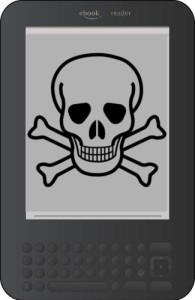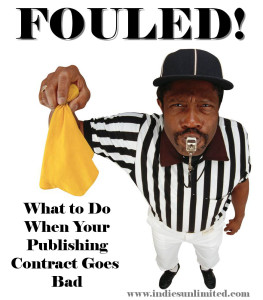 Pirate websites are among the banes of the indie author – and of traditionally-published authors, as well. But the Authors Guild, of all organizations, has suggested a fix.
Pirate websites are among the banes of the indie author – and of traditionally-published authors, as well. But the Authors Guild, of all organizations, has suggested a fix.
The move comes as the House Judiciary Committee is looking into a possible overhaul of U.S. copyright law. First, the basics: Copyright is different from publishing rights. In the United States, for works created after January 1, 1978, the creator of the work holds the copyright for his or her lifetime plus 70 years. You, as the copyright holder, may sell various types of publication rights – including film rights and foreign language rights – to others. But you’re not selling them your copyright. What you’re doing, in effect, is giving them a license to market the work you created and own. They then share the profits with you.
The difference with a pirate site is there’s no profit-sharing. Continue reading ““And Stay Down!”: Tweaking the DCMA”

 If you’ve been hanging around Facebook at all lately, you’ve probably seen this ad, complete with its clickbait headline. (Note: any ad whose title contains the words “a little known trick” is clickbait. But you knew that.) Sounds legit, right? I mean, everybody wants to write for the Huffington Post. It’s a huge name in online media, and having a post there gives you legitimacy (and, hopefully, eyeballs on your other work) like whoa.
If you’ve been hanging around Facebook at all lately, you’ve probably seen this ad, complete with its clickbait headline. (Note: any ad whose title contains the words “a little known trick” is clickbait. But you knew that.) Sounds legit, right? I mean, everybody wants to write for the Huffington Post. It’s a huge name in online media, and having a post there gives you legitimacy (and, hopefully, eyeballs on your other work) like whoa. After I finished grad school, I took some time off from writing. Okay, I took a number of years off. I was discouraged that I hadn’t gotten a publishing contract right away. I couldn’t even sell a short story. So I gave up and put everything away, and concentrated on raising my kids.
After I finished grad school, I took some time off from writing. Okay, I took a number of years off. I was discouraged that I hadn’t gotten a publishing contract right away. I couldn’t even sell a short story. So I gave up and put everything away, and concentrated on raising my kids.